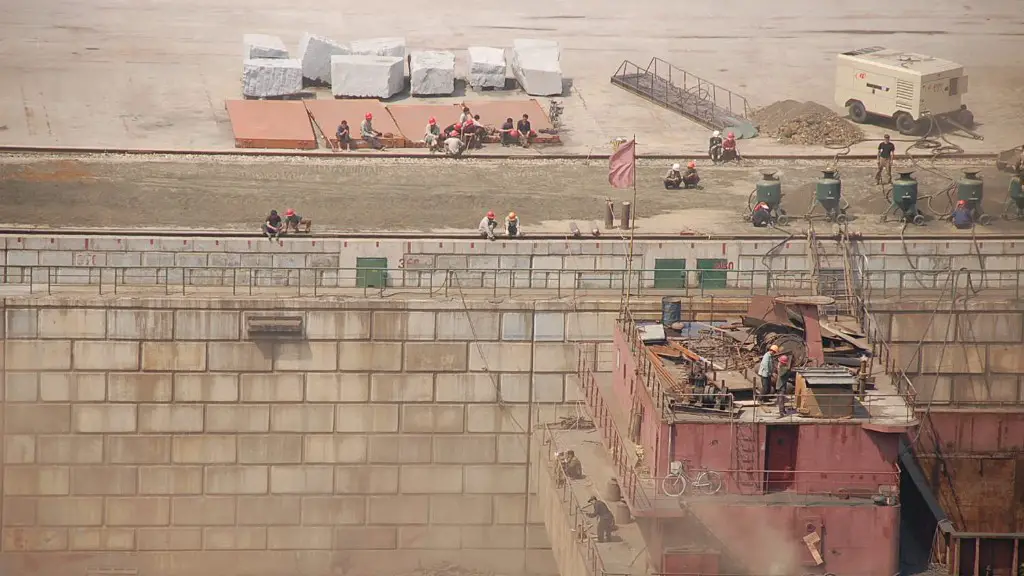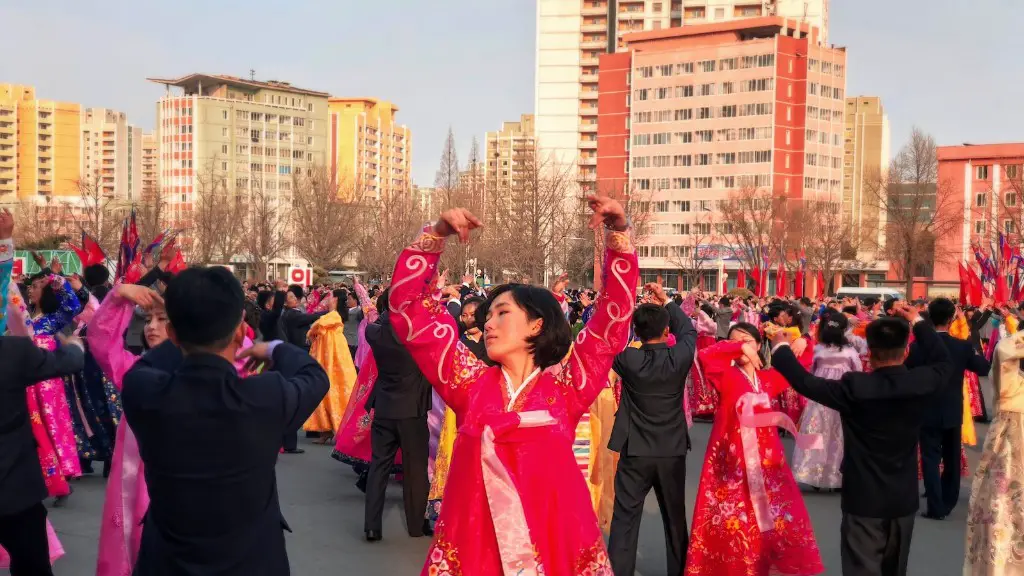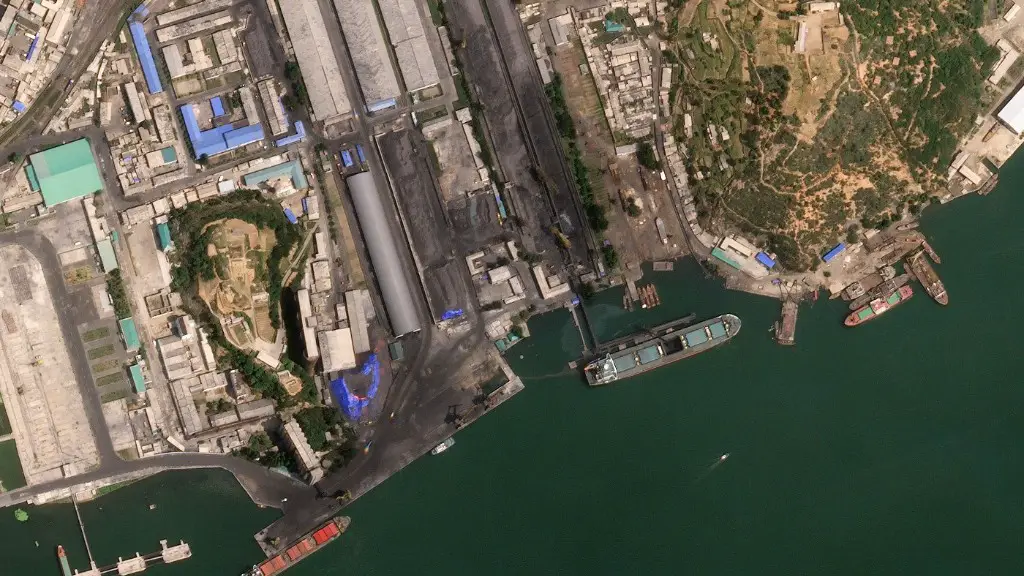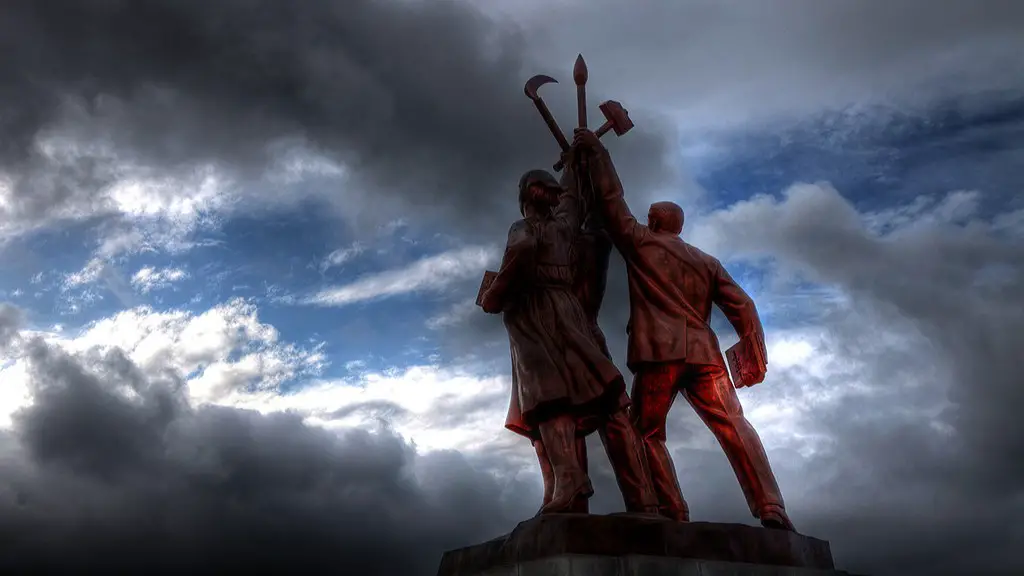The answer to this question is not entirely clear, but it is believe that North Korea does have some nuclear weapons. Estimates on how many vary, but it is generally thought to be a relatively small number. North Korea has been working on its nuclear program for many years, and there have been several reports of nuclear tests being conducted. However, it is not known if these tests were successful, or if the weapons produced are actually operational.
From what we know, North Korea does have nuclear weapons. They are believed to have anywhere between 10 and 60 nuclear warheads, and the capability to produce more. While the exact number is unknown, it is clear that they have at least a few nuclear weapons.
How many nukes does North Korea have?
North Korea has a military nuclear weapons program and, as of early 2020, is estimated to have an arsenal of approximately 30 to 40 nuclear weapons and sufficient production of fissile material for six to seven nuclear weapons per year.
The Democratic People’s Republic of Korea (DPRK) is believed to have begun research into nuclear weapons in the late 1950s or early 1960s, with the help of the Soviet Union. North Korea’s nuclear weapons program progressed rapidly over the next few decades, culminating in the first nuclear test in October 2006.
Since that time, North Korea has conducted five more nuclear tests, the most recent of which was in September 2017. It is believed that North Korea has continued to produce nuclear weapons and fissile material despite international sanctions, and it is estimated that the country has enough fissile material for approximately 30 to 40 nuclear weapons.
The proliferation of North Korea’s nuclear weapons program is a major concern for the international community, as it increases the risk of nuclear weapons falling into the hands of terrorists or other rogue states.
North Korea has extracted plutonium, an atomic bomb fuel, from its Soviet-designed nuclear reactor in Yongbyon, north of Pyongyang. It also runs centrifuges to produce weapons-grade enriched uranium, another bomb fuel. This means that North Korea now has the ability to create nuclear weapons. This is a very serious development, and the international community must take action to prevent North Korea from becoming a nuclear power.
What weapons does North Korea have
North Korea has carried out a record number of missile tests this year, from intercontinental ballistic missiles (ICBMs) to hypersonic weapons that can potentially evade defences. Rockets have also been fired from railcars, submarines and road-mobile launchers. This demonstrates the country’s continued commitment to expanding its military capabilities, despite international pressure and sanctions. While some of these tests may be for research and development purposes, they also serve as a show of force, and a reminder that North Korea remains a serious security threat.
The agreement between the USSR and North Korea allowed for the transfer of nuclear knowledge and technology with the intention of helping North Korea develop its own nuclear weapons program. The deployment of nuclear weapons by the US in South Korea was meant to deter the Soviet Union and North Korea from aggression against the South. However, the North Korean nuclear program continued despite these measures, and the country is now believed to have a significant nuclear arsenal.
Can North Korea hit the US with a missile?
The Hwasong-14 ballistic missile is a North Korean missile that can travel up to 4,500km. It has also been tested with a range of 8,000km, making it capable of reaching New York.
The six most likely target cities in the US are as follows: New York, Chicago, Houston, Los Angeles, San Francisco, and Washington, DC. These countries will stay prepared to combat any type of nuclear attack shortly. The nuclear impact could destroy the city and this will lead to a disaster.
Does Japan have nukes?
The note should address the following:
-Why does Japan have a full nuclear fuel cycle?
-What are some of the WMD-relevant industries in Japan?
-What are some of the implications of Japan’s WMD-relevant capabilities?
Japan has a full nuclear fuel cycle because it is the only non-nuclear weapon state in possession of advanced WMD-relevant industries. These industries allow Japan to produce, process, and store nuclear materials and equipment, as well as to develop and test nuclear weapons. As a result, Japan has the potential to develop and deploy WMDs. However, it is unclear whether or not Japan intends to do so.
The Germany government has repeatedly stated that it does not want nuclear weapons on its territory, and has called for the withdrawal of US nuclear weapons. In 2010, the German government issued a Policy Paper on Nuclear Weapons, which reaffirmed Germany’s commitment to the Non-Proliferation Treaty and called for the phased reduction and ultimate elimination of nuclear weapons.
How long does it take for a nuke to reach the US
It would take a land-based missile about 30 minutes to fly between Russia and the United States; a submarine-based missile could strike in as little as 10 to 15 minutes after launch. This difference in time is due to the fact that submarine-based missiles can travel at a much higher speed than land-based missiles.
Although anti-ballistic missile technology exists, it is not currently advanced enough to create a system that could protect against even a limited ICBM attack. This means that no nation has a real, credible capability to shoot down an incoming intercontinental ballistic missile.
Does Canada have a nuclear weapon?
In general, Canada is a supporter of international nonproliferation regimes and has worked to uphold these standards. Canada does not have nuclear, chemical, or biological weapons, or any relevant delivery systems for such weapons. The country is a party to all major nonproliferation treaties and regimes, and generally complies with their provisions.
The North Korean regime has a long history of nuclear testing, dating back to 2006. The most recent tests occurred in 2017, when the regime successfully tested a hydrogen (thermonuclear) weapon that is at least 10 times as powerful as the Hiroshima and Nagasaki bombs. Given the regime’s continued nuclear activity, it is likely that North Korea will conduct additional nuclear tests in the future.
How many miles will a nuclear bomb destroy
The destruction caused by a single bomb with a yield of 1 megaton is far greater than the destruction caused by 8 smaller bombs, each with a yield of 125 kilotons. This is due to the fact that the larger bomb produces a much higher amount of energy than the smaller bombs. This relationship is one of the reasons why delivery systems that can carry multiple warheads (MIRVs) have been developed.
It is widely believed that China began developing nuclear weapons in the late 1950s with substantial Soviet assistance. In 1951, China and the Soviet Union signed a secret agreement through which China provided uranium ores in exchange for Soviet assistance in nuclear technology. This agreement helped jumpstart China’s nuclear weapons program, and by the late 1950s China had developed its first nuclear weapons.
How many nukes does Japan have?
In recent years, the question of whether or not Japan should develop its own nuclear weapons has been a hot button issue. The Japanese government has considered developing them in the past, but decided this would make Japan less secure. Japanese opinion polls consistently express strong public opposition to nuclear weapons, as do their elected representatives.
This is a very serious issue that needs to be addressed. Russia’s land-based missiles could reach the US in just 30 minutes, and their submarine-based missiles could strike 10-15 minutes after they are launched. This is a huge threat to our national security and we need to take steps to ensure that we are prepared.
Warp Up
Yes, North Korea has a nuclear weapons program and is believed to have a small number of nuclear weapons.
North Korea does not have any nuclear weapons.





